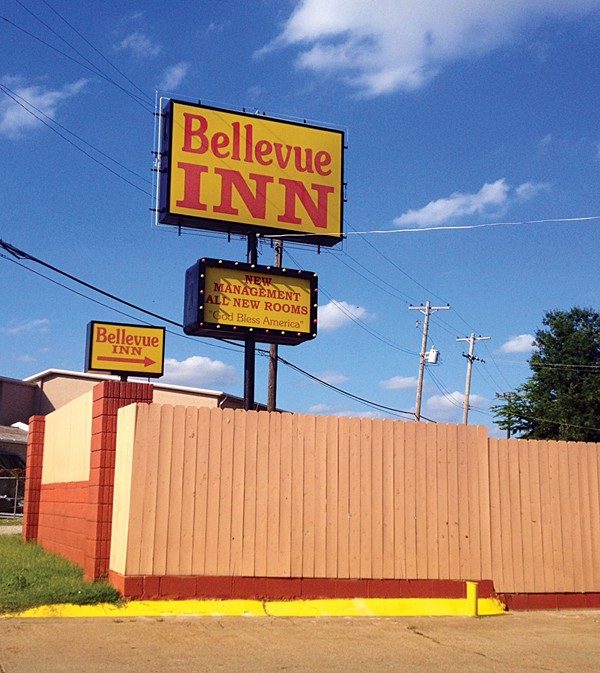In 1997, former Flyer reporter Phil Campbell wrote a cover story titled “Cheaper by the Hour,” which detailed the operations of local hourly rate motels three years after a zoning ordinance was passed to try and relocate the motels.
“But three years after the zoning ordinance was passed, the hourly rate motels have not moved from their old locations in the commercial districts,” Campbell wrote. “The council has been told by the courts that it simply cannot shut down independent motels that charge by the hour, and the motel owners do not appear ready to give up their current locations. The motels persist as the most accessible place in Memphis to both buy and have cheap sex, and they continue to blight declining neighborhoods.”
 bianca phillips
bianca phillips
Campbell spent the night at the Bellevue Inn, located at 1250 South Bellevue, and described his interactions with prostitutes as they repeatedly approached him and asked if he’d like some company.
“Before I reach my room, a woman jumps out of a parked van and asks in a wooden voice, ‘Can I come, too?’ Her eyes are unfocused, strung out. I tell her maybe later. It is only 7:30. Business is still slow,” writes Campbell.
According to Memphis City Council Chairman Jim Strickland, a mechanism was set to combat existing hourly rate motels when ownership transfers. There isn’t much the council can do, however, about m otels that have been charging hourly rates for years and haven’t changed owners.
“Any transfer of ownership of a hotel has to come before the city council, even if the name of the hotel isn’t changing, even if the employees aren’t changing,” he said. “If the ownership is changing, they have to file an application and come before the city council. Through that process, the rates are verified, and they cannot be hourly rates. All of the new owners have to come in. Their testimony is recorded, saying it’s not an hourly rate motel.”
By having the transfers of ownership come before the council, any crimes that occurred at the motel over the previous one to two years can be reviewed by councilmembers.
“If there’s a prostitution arrest there, that’s a red flag,” Strickland said. “If an owner comes in, testifies to us that it’s not going to be an hourly rate motel, and it turns into one, we can file suit to shut them down. But in my six-and-a-half years on the council, I don’t think I’ve ever gotten a complaint that something we approved ended up being an hourly rate motel.”
Last year, a year-long Memphis Police Department investigation from the Organized Crime Unit called “Operation Bed Bug” temporarily closed seven local motels that had been declared public nuisances by District Attorney Amy Weirich.
The Bellevue Inn, the same motel that Campbell visited in his story, was one of the seven.
“It’s a quality of life issue. No matter where you live, what religion you are, what race you are, what gender you are — you want nice, clean, safe neighborhoods,” Strickland said. “We all want those same things. Prostitution violates that quality of life standard that we all want.”